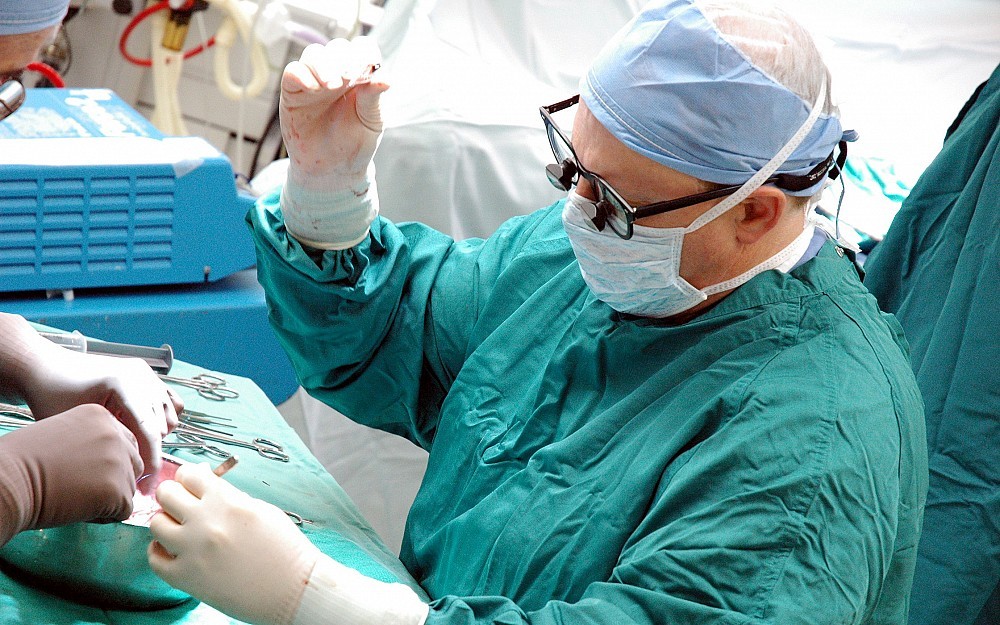
UC Kidney Transplant Program Stands Out in Ohio
CINCINNATIAccording to a recent national report, the University of Cincinnati Kidney Transplant Program leads in Ohio with the combined highest rate of transplant and good outcomes.
"Were excited to see that UC provides recipients the fastest transplant with the best results in Ohio, says Steve Woodle, MD, professor and director of the Division of Transplantation in the Department of Surgery and William A. Altemeier Chair in Surgery at UCs College of Medicine.
These results come from a new website created by the Scientific Registry of Transplant Recipients (SRTR) for the general public to use as a means for patients and their families to choose where they want to have their transplants, says Woodle.
The registry contains program specific reports on every solid organ transplant in the United States. It can be searched by type and location and provides information on location, transplant volume, transplant rate, and outcome assessment.
The report shows the UC kidney transplant team currently has a transplant rate of 33.8 per 100 people waiting per year and an outcome assessment of "good (as expected).
According to the United Network for Organ Sharing (UNOS), kidneys are the most commonly demanded and transplanted organ every year, partly because dialysis can prolong the life of people waiting for this organ. In 2016, UNOS reports a total of 19,059 kidney transplants occurred. To date, there are 98,745 candidates on the kidney transplant waiting list.
The UC transplant team performed approximately 96 kidney transplants at the University of Cincinnati Medical Center in 2016, with almost half of those involving living donors.
"We know that living donor kidneys last longer and they work better so we have worked strategically to make our living donor program robust, while also remembering that not all patients can or will have a living donor, says Amit Govil, MD, professor in the Division of Nephrology, Kidney C.A.R.E. program and director of the UC Health Kidney Transplant Program.
Being able to manage and assess the myriad of tough decisions is what makes the UC kidney transplant program a success, he says, adding: "When you look at all of the programs in Ohio, of course I think we are the best option, says Woodle.
One in three American adults is at risk for kidney disease. Twenty-six million American adults have kidney diseaseand most aren't aware of it. Risk factors for kidney disease include diabetes, high blood pressure, family history, and being over the age of 60. People of African-American, Hispanic, Native American, Asian or Pacific Islander descent are at increased risk for developing the disease. African-Americans are 3.5 times more likely, and Hispanics 1.5 times more likely, to experience kidney failure.
Related Stories
Why can perimenopause make migraines worse?
April 23, 2025
Experts say women who have migraine symptoms linked to their menstrual cycle are prone to migraine problems during perimenopause.
UC study finds vision loss fear may keep some from having...
April 23, 2025
A new University of Cincinnati study finds vision loss fears may deter some patients from cataract surgery, despite it being the only effective treatment. The research underscores the role of doctor-patient relationships in medical decisions.
Creating a stronger community on and off campus
April 23, 2025
UC student leaders discuss the need for better student-neighborhood relations and a desire to build a better community on campus. Student Body President Joshua Copley and Student Body Vice President Wilaini Alicea are being their term with UC Student Government.
